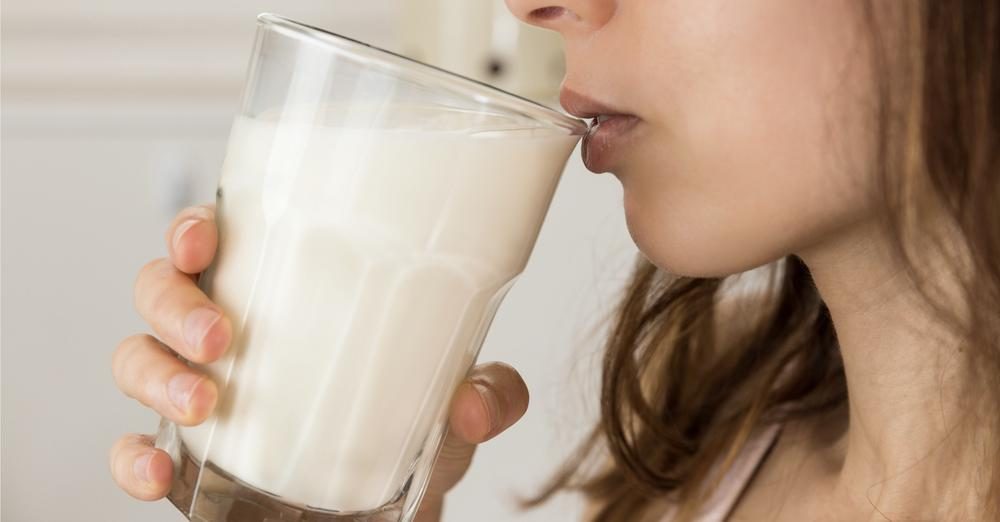Milk: the 6 myths to debunk about the precious white liquid
After water, milk is probably the most widespread drink in the world. For this reason, in 2001 FAO established World Milk Day, a day dedicated to the precious white liquid. Milk is often subject to popular beliefs, some negative, others positive; so let's see the 6 myths to debunk about the white drink.
;)
It is the first food we try as soon as we come out of a mother's womb, the drink that nourishes all mammals in the world; milk, a drink that feeds the little ones and that many humans will still drink throughout their lives. In 2001, FAO established World Milk Day (1st of June, because several European countries already celebrated milk on this day) to highlight the global importance of this food.
At each edition of World Milk Day there are new nations which start to celebrate because, although in recent years we have seen a right/wrong demonization of milk, it still remains a global and beloved food. Anyway it must be said that global milk production has an high impact on animal wellness, cows are often raped to obtain milk, depriving animals of any right. But it is also true that bad treatments must not obscure serious farms, or the healthy contribution that milk can have in our diet.
The 6 milk myths to dispel
You can hear anything about milk. There are people that think that digesting it is impossible, and those who think that intolerance is an imaginary disease, then there are those who see it as a central part of their diet and those who think that eliminating it is good. As is often the case, the truth lies somewhere in between.
1. Milk is harmful to adult health

That milk is harmful to health is absolutely false. According to an Umberto Veronesi Foundation study, milk is not harmful to anyone. The drink is rich in nutrients such as carbohydrates, proteins, fats, calcium, phosphorus and vitamins. The Umberto Veronesi Foundation has declared that "milk is a natural and complete food that we can drink at all ages; from infancy to adulthood it offers a valid supply of nutrients such as proteins of high biological value and calcium, all things which are very important for our body" .
2. Of all animals, only humans drink milk as adults

This is a real myth, but there is no problem; after all, humans don't eat their own offspring like many other mammals do. According to Luigi Luca Cavalli Sforza, one of the most important geneticists in history, the use of milk would even be one of the reasons that led to the evolution of man. The California University professor writes that "an important example of an advantageous mutation that has occurred in recent human evolution is, in fact, the ability to digest lactose as adults. When humans, starting from Africa, invaded other continents adapting to different environmental conditions, there was a sort of natural selection; the ability to digest milk as adults has allowed humans to obtain vitamin D and calcium also where solar radiation is not very intense.
3. Drinking milk helps prevent diseases such as osteoporosis, cancer, heart problems

In this case, let’s say half-myth; on some diseases milk has a beneficial effect, on others unfortunately there is no effect. Obviously, it is easy to guess about osteoporosis, as this is a disease caused by a lack of calcium in the bones. Thanks to the high content of this mineral salt in milk, the drink is a perfect ally against osteoporosis.
It is different about tumors; according to the Umberto Veronesi Foundation, neither milk nor its derivatives increase the risk of developing cancer, therefore they do not involve health risks, but they do not help to fight cancer at all. This myth was born about thirty years ago when it was hypothesized a relationship between casein and the appearance of cancer as a consequence of the consumption of dairy products. However, the American Institute for Cancer Research has shown that there is no relationship between the consumption of dairy products and the onset of serious diseases such as cancer. Instead, the opposite has been hypothesized, namely the possibility that milk instead reduces the probability of colon cancer due to the presence of vitamin D; however, these are all hypotheses, there is no certainty.
For cardiovascular diseases, on the other hand, we must give bad news to all milk lovers; milk contains a lot of saturated fat and cholesterol, so for people with heart or cardiovascular diseases, milk intake is not recommended.
4. Milk makes you fat

As with all foods, the answer lies somewhere in between. Drinking milk does not make you fat, and the same goes for its derivatives. But, on the other hand, massive consumption leads to an excess energy intake that leads to gaining a few pounds. But without exaggerating, you can drink milk.
5. Milk is difficult to digest

Milk is difficult to digest only if you are intolerant to it. The feeling of swelling and discomfort must be alarm bells that can be easily diagnosed thanks to easy laboratory tests. But not all intolerances are the same, there are "degrees" of intolerance and so there are also different remedies.
6. Not all milk is actually milk

We are used to calling "milk" any natural drink, be it coconut, almond or soy. This is quite wrong. According to a ruling by the European Court, “milk shall mean exclusively the normal mammary secretion obtained from one or more milkings without either addition thereto or extraction therefrom”, and this means that the name "milk" could not legitimately be used to designate a purely vegetable product.
;Resize,width=767;)
;Resize,width=712;)

;Resize,width=712;)
